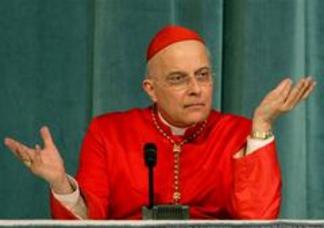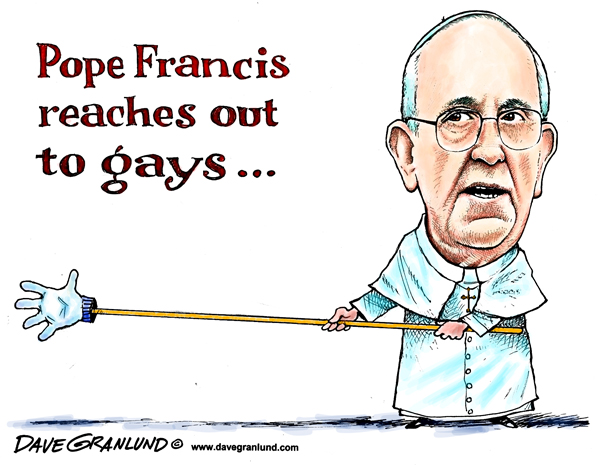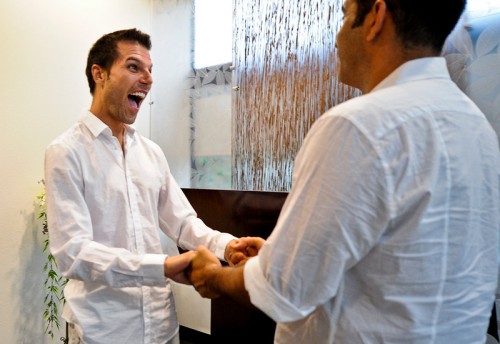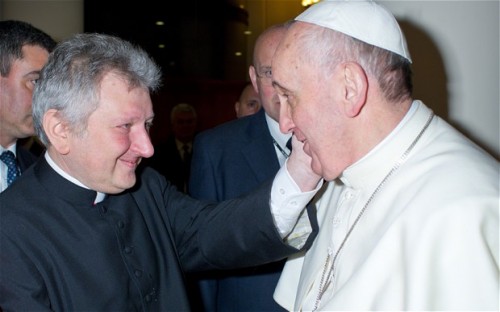File under: Will wonders never cease…
By Elizabeth Tenety
In an extensive interview with Jesuit publications released Thursday, Pope Francis set the framework for his papacy, calling for reform of both the attitude and the structure of the church, and addressing head-on the criticism that he has not talked enough about abortion, homosexuality and contraception.
 The leader of the global Catholic Church chided what he saw as the tendency of some church leaders to focus on “small-minded rules” and instead insisted that “the church’s ministers must be merciful.” Francis said, “the people of God want pastors, not clergy acting like bureaucrats or government officials.”
The leader of the global Catholic Church chided what he saw as the tendency of some church leaders to focus on “small-minded rules” and instead insisted that “the church’s ministers must be merciful.” Francis said, “the people of God want pastors, not clergy acting like bureaucrats or government officials.”
Reflecting on the response to his comment ‘Who am I to judge?‘ on homosexuality, made during his return trip from World Youth Day in August, Francis elaborated, “Tell me: when God looks at a gay person, does he endorse the existence of this person with love, or reject and condemn this person? …. It is necessary to accompany them with mercy.”
The pope also addressed some of the controversial topics inside the church, including homosexuality, the role of women, his view of a need for reform and a tendency toward legalism.
On abortion, gay marriage and contraception:
“We cannot insist only on issues related to abortion, gay marriage and the use of contraceptive methods. This is not possible. I have not spoken much about these things, and I was reprimanded for that. But when we speak about these issues, we have to talk about them in a context. The teaching of the church, for that matter, is clear and I am a son of the church, but it is not necessary to talk about these issues all the time.
On women’s leadership:
“We must therefore investigate further the role of women in the church. We have to work harder to develop a profound theology of the woman. Only by making this step will it be possible to better reflect on their function within the church. The feminine genius is needed wherever we make important decisions. The challenge today is this: to think about the specific place of women also in those places where the authority of the church is exercised for various areas of the church.”
On doubt:
“Yes, in this quest to seek and find God in all things there is still an area of uncertainty. There must be. If a person says that he met God with total certainty and is not touched by a margin of uncertainty, then this is not good. For me, this is an important key. If one has the answers to all the questions—that is the proof that God is not with him.”
On legalism:
“If the Christian is a restorationist, a legalist, if he wants everything clear and safe, then he will find nothing. Tradition and memory of the past must help us to have the courage to open up new areas to God. Those who today always look for disciplinarian solutions, those who long for an exaggerated doctrinal ‘security,’ those who stubbornly try to recover a past that no longer exists—they have a static and inward-directed view of things. In this way, faith becomes an ideology among other ideologies.”
On how he sees himself:
“Yes, perhaps I can say that I am a bit astute, that I can adapt to circumstances, but it is also true that I am a bit naïve. Yes, but the best summary, the one that comes more from the inside and I feel most true is this: I am a sinner whom the Lord has looked upon.”
Complete Article HERE!




